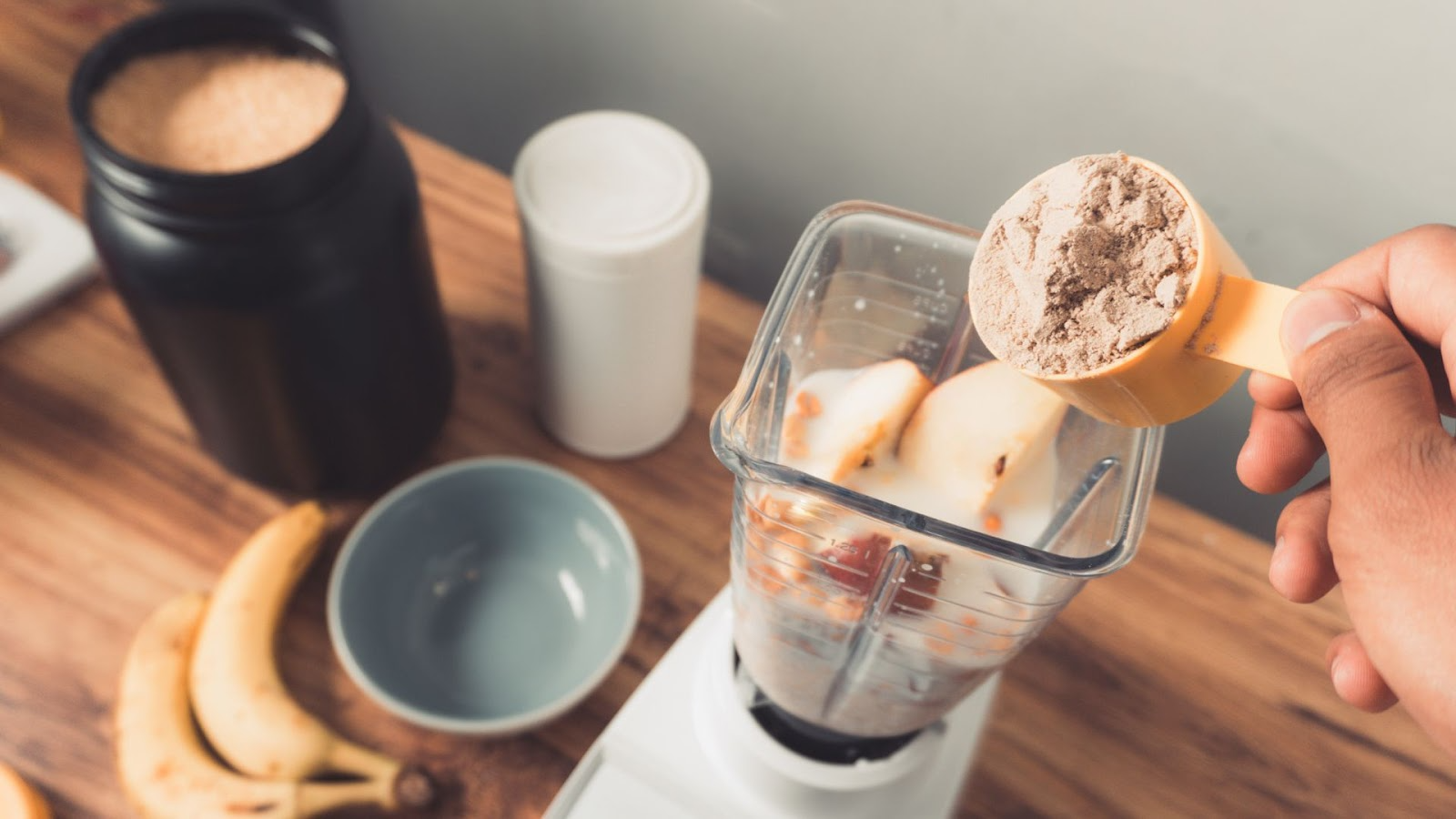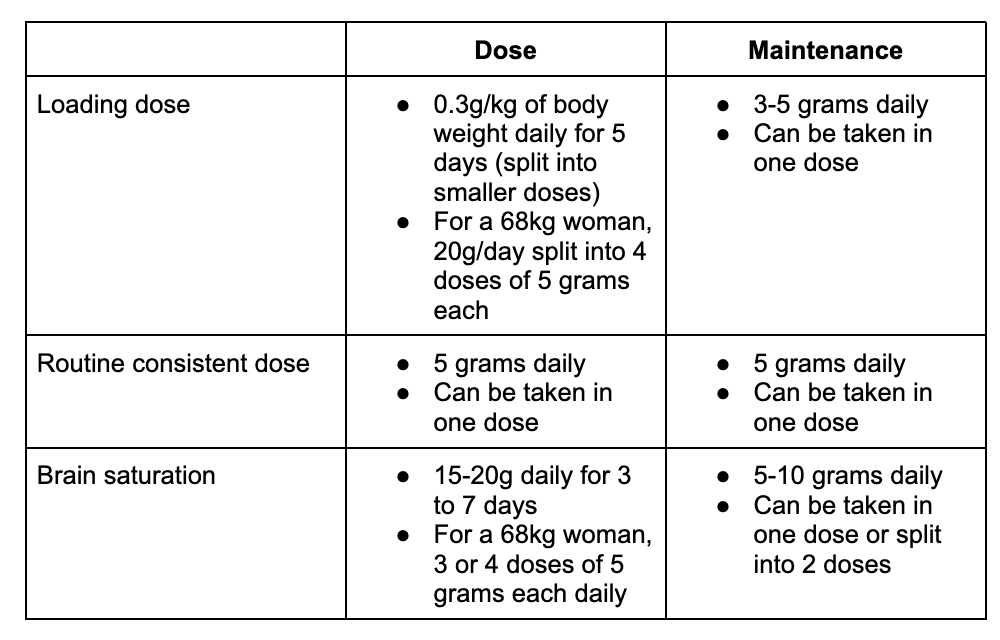Health
The surprising supplement for a sharper brain and better ageing

Once the exclusive domain of gym junkies and muscle heads, creatine is emerging as a powerful supplement that may improve cognition, memory, mood and menopause symptoms. Sabrina Rogers-Anderson investigates.
By Sabrina Rogers-Anderson
Most health experts – the ones with integrity – will tell you there’s no need to spend your hard-earned dollars on expensive supplements that claim to improve various aspects of your physical and mental health.
Unless you have a specific nutritional deficiency, a well-balanced diet should give you all the nutrients you need.
A notable exception is creatine – a natural compound produced by the body and traditionally used in supplement form (creatine monohydrate) by bodybuilders and fitness fiends.
It’s one of the most well-researched supplements on the market and has been shown to help build muscle when combined with strength training as well as improve performance in endurance athletes.
But now, a growing body of evidence is showing that creatine may have benefits that extend beyond the gym and well into old age.
It has been shown to reduce sarcopenia – the decrease in muscle mass that occurs with ageing – and the risk of falls in older people. And recent studies have even found that it may improve cognition, memory, mood and menopausal symptoms.
Here’s everything you need to know.
What is creatine?
Our bodies make creatine from 3 amino acids: arginine, glycine and methionine. The liver, pancreas and kidneys produce about 1 gram of creatine a day and we get approximately the same amount from foods including red meat, seafood and animal milk.
Creatine is mostly stored in the muscles (as well as in the brain) and is used to produce energy.
“All our cells use something called ATP [adenosine triphosphate] as their primary energy currency,” says Jonathan Steedman, Principal Dietitian and Director at Bite Me Nutrition.
“Our cells break down ATP to create energy, and then they have to make more ATP. Creatine is involved in the process of making ATP, so having a steady source of creatine helps our cells make it much faster.”
5 potential benefits of creatine
Everyone and their grandma seems to be studying creatine at the moment, and some exciting findings are emerging.
But we need to take them with a grain of salt until further research confirms the newfound evidence, says Jonathan.
“In the initial stages of research on any supplement, the findings are often extremely positive,” he explains. “There’s a publishing bias where studies that show no effect or a negative effect are far less likely to get published than those with a positive effect. But over time, more studies come out and we get a more balanced view.”
With that in mind, here’s the latest evidence on the potential benefits of creatine.
1. Memory and cognitive performance
A major 2024 study review found that creatine supplementation had significant positive effects on memory, attention time and information processing speed – especially in people with diseases, women and those aged 18 to 60.
Another review published in 2018 concluded that creatine improved short-term memory and intelligence/reasoning in healthy adults with particularly notable effects in stressed and ageing people.
While a 2024 UK review of 15 studies didn’t find clear evidence of cognitive benefits from creatine supplementation in young and healthy adults, the authors note that it shows potential for improving cognition in stressed populations including the elderly, sleep-deprived, mentally fatigued and vegetarians/vegans.
German researchers gave a single mega-dose (35g) of creatine to sleep-deprived participants and found that their processing speed and cognitive performance was better than those who didn’t take creatine.
A small pilot study has even shown promising results when it comes to improving cognition in patients with Alzheimer’s disease.
All of these studies mention the need for more research to confirm the effects of creatine on cognition and memory, particularly in ageing and compromised groups who stand to benefit from it most.
2. Mood and depression
Several studies have shown that creatine may help ease symptoms of depression when used in combination with traditional depression treatments.
In a 2025 study, UK and Indian researchers found that creatine supplementation combined with cognitive-behavioural therapy (CBT) more effectively relieved depressive symptoms than CBT with a placebo (inactive substance).
A review of the existing research found that creatine may ease depression, particularly when combined with antidepressant medications, by improving brain energy metabolism.
One study looked at prefrontal cortex creatine levels in people with varying levels of depressive symptoms that didn’t qualify as major depression. It found that those with higher levels of prefrontal creatine had lower depressive symptoms.
3. Menopause symptoms
As with many other areas of medical research, creatine supplementation in women is understudied.
But several reviews of the existing evidence have found an array of potential benefits for menopausal and postmenopausal women, including:
- Maintaining muscle mass and strength (especially when combined with strength training)
- Supporting bone health (in combination with strength training)
- Enhancing cognitive function (especially when sleep deprived)
- Improving mood and depressive symptoms
- Reducing inflammation
4. Post-viral fatigue
A 2023 study found that patients with post-COVID-19 fatigue syndrome who took 4 grams of creatine a day for 6 months had significantly lower levels of general fatigue, concentration difficulties, body aches, headaches and breathing difficulties than those who took a placebo.
5. Cancer risk
Two separate studies that analysed data from the National Health and Nutrition Examination Survey (NHANES) from 2007 to 2018 discovered a reduction in cancer risk associated with creatine supplementation.
The first found that every extra milligram of creatine per kilogram of body weight consumed daily reduced the risk of cancer by about 1% in adults aged 20 and over.
In adults aged 52 and over, the second study found that each additional 0.09 grams of creatine was linked to a 14% reduction in cancer risk.

Is creatine safe and are there side effects?
There have been many anecdotal reports of bloating, cramping, nausea, muscle spasms and other side effects associated with creatine supplementation, but there’s no solid evidence to support these claims.
In a 2025 review of 685 clinical trials assessing the safety and side effects of creatine supplementation, researchers found that the rate of side effects was no higher in people taking creatine than in those who took a placebo.
But there is one caveat. “People with kidney issues or a family history of kidney issues should talk to their doctor before taking creatine,” says Jonathan.
How much creatine should men and women take per day?
The standard recommended dose of creatine is 3 to 5 grams a day. While this dose will increase muscle creatine stores over time and help build muscle mass and strength when combined with resistance training, it isn’t enough to achieve any of the cognitive benefits.
“We need to move past saturating the muscle cell and give the brain enough creatine,” Jonathan explains. “The brain is very thirsty for creatine, so most of the studies that have found cognitive benefits have given participants about 0.3 grams per kilogram of body weight. For someone who weighs 68 kilos, that’s 20 grams of creatine per day split into several doses. That can feel like too much for a lot of people.”
Women have 70 to 80% lower creatine stores compared to men – due in part to their lower muscle mass – and 7 out of 10 women don’t consume enough dietary creatine. But it seems that women respond similarly to men when taking a creatine supplement and can use the same dosing strategy.
To increase muscle or brain creatine stores quickly, you can start with a high-dose loading phase before dropping your dose for the maintenance phase. Or you can start at the low dose and stay on it, keeping in mind that it will take a few weeks for your cells to be saturated.
Here’s a dosing guide that can be used by both men and women with example dosages for a 68kg female:

What type of creatine should you look for?
“Don’t buy into the designer creatine hype,” says Jonathan. “They can be 4 times the price and they’re not any more effective.
“That’s the great thing about creatine – it has so many benefits and it’s inexpensive. Look for creatine monohydrate and buy the cheapest one you can find because they’re all the same.”
Get the green light from your doctor
Still unsure about whether a creatine supplement is right for you? Talk to your GP or a qualified dietitian before you start, especially if you have kidney issues or any other health concerns.
The information on this page is general information and should not be used to diagnose or treat a health problem or disease. Do not use the information found on this page as a substitute for professional health care advice. Any information you find on this page or on external sites which are linked to on this page should be verified with your professional health care provider.
Feature image: iStock/ChayTee
Tell us in the comments below: Do you take creatine? Or other supplements?

More ways to look after yourself:
